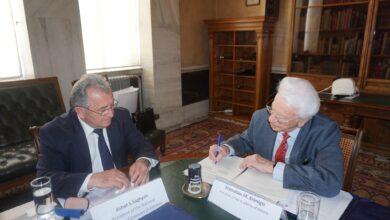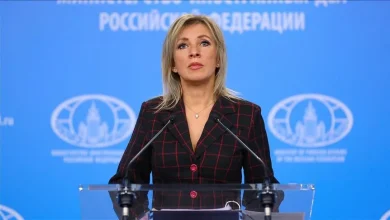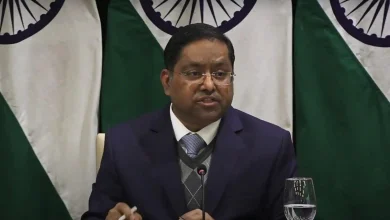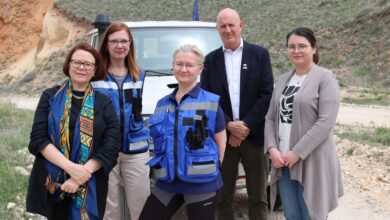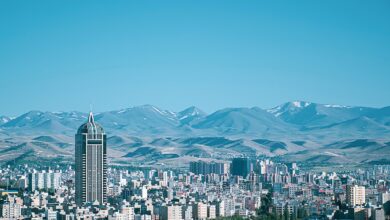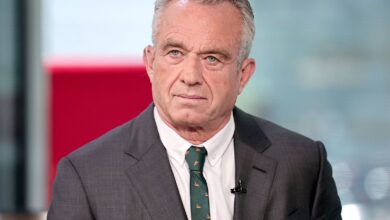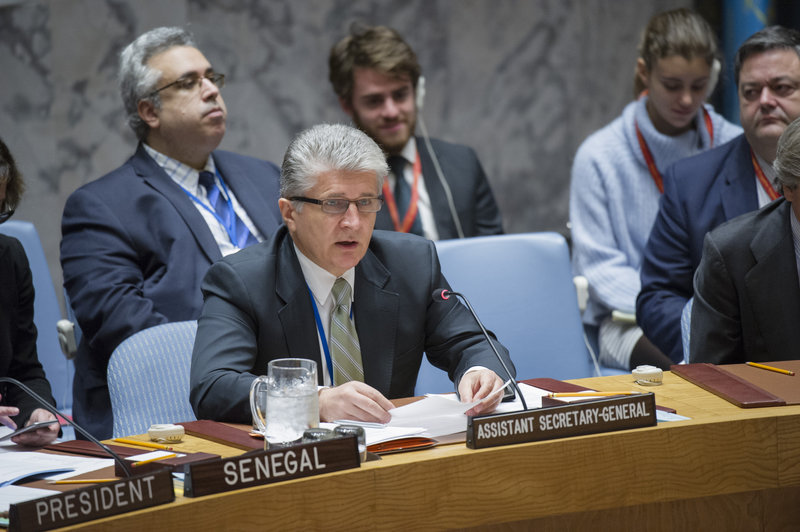
UN Assistant Secretary-General for Europe, Central Asia and Americas Miroslav Jenča said at the UN Security Council emergency meeting that since his last briefing on Armenia and Azerbaijan, the situation has remained fragile, with the sides regularly trading accusations of ceasefire violations.
“Despite these sporadic incidents, a glimmer of hope for progress in ongoing diplomatic efforts has appeared following renewed violence in mid-September, with several high-level diplomatic initiatives. In October, Nikol Pashinyan, Prime Minister of Armenia, and Ilham Aliyev, President of Azerbaijan, met in Prague in the margins of the first European Community meeting at the invitation of Emmanuel Macron, President of France, resulting in an agreement to deploy the European Union monitoring capacity in Armenia, with its mandate ending yesterday. A longer European Union mission in Armenia is being envisaged, with the goal of contributing to peace in the region,” Mr. Jenča said.
He recalled that in late October, leaders of the country met again in Sochi, hosted by Vladimir Putin, President of the Russian Federation, where they agreed to refrain from use or threat of force. Several other meetings at the Foreign Minister and Deputy Prime Minister-level took place in recent months. Discussions were held regarding possible settlements, including the critical issues of border limitation and demarcation, within the framework of mutual recognition of their territorial integrity and sovereignty. In addition to the European Union mission agreed on by both sides, the Organization for Security and Co-operation in Europe (OSCE), as well as the Collective Security Treaty Organization — at the request of Armenia — have also deployed missions to Armenia. The Secretary-General’s bilateral meetings with the Prime Minister of Armenia and Jeyhun Bayramov, Foreign Minister for Azerbaijan, urged progress towards a peaceful settlement. The United Nations will remain in close contact with all relevant actors and concerned parties and stands ready to support ongoing peace efforts. The United Nations country teams in both States are also continuing to undertake programmatic assessments, including to accessible conflict-impacted areas.
Regrettably, despite promising diplomatic engagements, he noted that tensions on the Armenian-Azerbaijani border and around areas under control of Russian Federation peacekeeping forces have not abated as hoped, with various incidents being reported. On 12 December, there were reports of protests near the Russian Federation peacekeeping post on the Lachin Corridor — a vital artery for people in the area — with protesters claiming illegal exploitation of mineral resources and environmental impact on the area. He noted that the United Nations is not present in the Corridor or the areas under Russian Federation peacekeeper control and, thus, is not able to verify claims and allegations. Representatives of both Armenia and Azerbaijan have written to the Secretary-General and the Security Council regarding recent events, challenging each other’s claims and providing widely differing accounts of the situation. Both sides have accused the other of violating the 9 November 2020 trilateral statement signed by Armenia, Azerbaijan and the Russian Federation.
Also citing media reports and statements from peacekeepers indicating that some humanitarian supplies have gotten through, he stressed it is imperative that those in need be permitted travel freely and access basic services. Welcoming the commitment of peacekeeping forces to facilitate and ensure safe passage through the corridor, he recalled that on 14 December, the Secretary-General urged the sides to deescalate tensions and ensure freedom of security and movement through the Corridor in line with previous agreements. Country teams in both States maintain open channels with authorities and are prepared to respond to humanitarian needs if requested. Underscoring that the potential human toll of resumed conflict could be considerable — not only impacting people of Armenia and Azerbaijan, but the wider South Caucasus region and beyond — he emphasized that the international community must not allow that to happen. The parties must implement the tripartite statement and subsequent agreements and redouble efforts for a negotiated peaceful settlement before it is too late.


